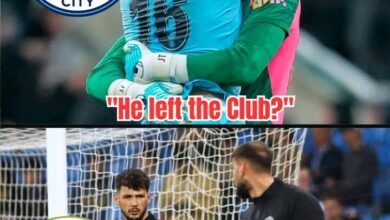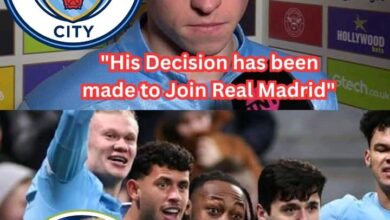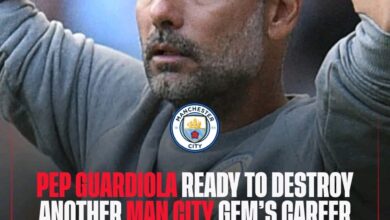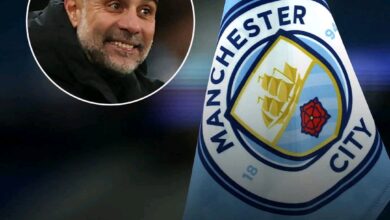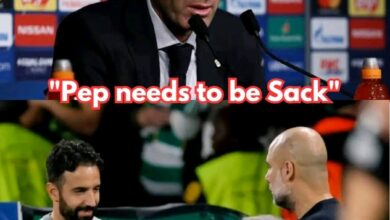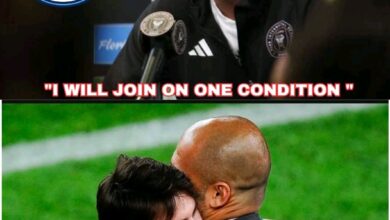Manchester City are preparing an aggressive move in the transfer market,

Manchester City are preparing an aggressive move in the transfer market, with plans to invest approximately £180 million in two key midfield talents: Bayer Leverkusen’s Florian Wirtz and AC Milan’s Tijjani Reijnders. This ambitious double acquisition comes as the club aims to strengthen its squad ahead of next month’s Club World Cup in the United States. The potential departures of veteran players, most notably Kevin De Bruyne, are creating both the financial opportunity and tactical necessity for these transfers. This comprehensive analysis examines the strategic implications, financial considerations, player profiles, and competitive landscape surrounding these potential marquee signings.
The Strategic Vision Behind City’s Transfer Push
Manchester City’s transfer approach reflects a deliberate strategy to rejuvenate their squad while maintaining their competitive edge across multiple competitions. Having already invested £180 million during the January transfer window, the club’s continued willingness to spend heavily signals both their financial muscle and their determination to extend their dominance in domestic and international competitions.
Pep Guardiola’s desire to complete these transfers before the Club World Cup demonstrates the club’s proactive planning. Rather than waiting until later in the summer transfer window, City aim to integrate new talents into their system early, allowing for a smoother transition and better team cohesion ahead of the expanded Club World Cup tournament.
This aggressive market approach also serves as a statement of intent to their rivals. By targeting two of Europe’s most coveted young midfielders, City are not only strengthening their own squad but potentially denying these talents to competitors like Liverpool, Bayern Munich, and Real Madrid.
Player Profiles: The Next Generation of City’s Midfield
Florian Wirtz: De Bruyne’s Heir Apparent
At just 22 years old, Florian Wirtz has established himself as one of European football’s brightest talents. The German international playmaker has been instrumental in Bayer Leverkusen’s recent success under Xabi Alonso. Wirtz combines exceptional technical ability with creative vision, making him a natural successor to Kevin De Bruyne’s role at City.
Wirtz’s relatively modest current salary of under £80,000 per week in the Bundesliga represents a significant value proposition for City, despite the substantial transfer fee. His age profile aligns perfectly with City’s strategy of investing in young talents who can contribute immediately while offering long-term value and potential resale opportunities.
The German playmaker’s statistical contributions have been impressive, with his ability to create chances, score goals, and operate effectively in multiple attacking positions making him an ideal fit for Guardiola’s tactical system. His experience in both domestic and European competitions provides the necessary pedigree for a club with City’s ambitions.
Tijjani Reijnders: Adding Dutch Dynamism
At 26 years old, Tijjani Reijnders offers a slightly different profile as a more established professional entering his prime years. The Dutch international brings versatility to the midfield, combining defensive awareness with progressive passing ability. Since joining AC Milan, Reijnders has developed into a key performer in Serie A, earning recognition for his consistent performances.
Having recently signed a new five-year contract with Milan in March, which increased his weekly wages to £96,000, Reijnders represents a secure investment with room for further development. His contract situation explains the premium City will need to pay to secure his services, potentially exceeding Milan’s current transfer record of £56.3 million set by Kaká.
Reijnders’ ability to operate in deeper midfield positions would complement City’s existing options while providing additional tactical flexibility. His international experience with the Netherlands further enhances his appeal as a player capable of performing at the highest level.
Financial Framework: The Economics Behind the Double Deal
Breaking Down the £180 Million Investment
The proposed £180 million outlay would be divided unevenly between the two targets, reflecting their different market valuations:
- Florian Wirtz (Bayer Leverkusen): Valued at over £100 million by his current club, making him the centerpiece of City’s transfer strategy. City are reportedly considering including promising youngster James McAtee as part of the deal, potentially reducing the cash component by approximately £25 million.
- Tijjani Reijnders (AC Milan): Expected to cost in excess of £56.3 million, which would surpass AC Milan’s current record sale (Kaká). This valuation reflects both his recent contract extension and Milan’s reluctance to lose a key player.
Balancing the Books: De Bruyne’s Potential Departure
The potential departure of Kevin De Bruyne creates significant financial flexibility for Manchester City. The Belgian midfielder’s weekly wages exceed £350,000, representing annual savings of over £18 million that could be redirected toward the salary packages for both Wirtz and Reijnders.
This approach aligns with City’s financial strategy of managing their wage structure while complying with financial regulations. By replacing one high-earning player with two younger talents on more moderate salaries, City can optimize their wage bill while potentially strengthening their squad depth.
Competitive Context: The Race for Elite Talent
Rival Interest and Market Competition
Manchester City are not operating in isolation in their pursuit of these players. Both Wirtz and Reijnders have attracted interest from other elite European clubs:
- Wirtz: Bayern Munich have long been linked with the German international, following their tradition of recruiting the Bundesliga’s top talents. Liverpool, under new manager Arne Slot, have also expressed interest, with reports suggesting Wirtz has already held discussions with both Guardiola and Slot about his future.
- Reijnders: His performances at AC Milan have placed him on the radar of several top clubs, with his technical profile making him attractive to possession-based teams across Europe.
The involvement of Xabi Alonso adds another layer of complexity to the situation. The current Leverkusen manager, reportedly set to take over at Real Madrid this summer, is an admirer of both players. This creates the possibility that Real Madrid could emerge as competitors for either signing.
Tactical Integration: Fitting into Guardiola’s System
Wirtz: The Creative Fulcrum
Wirtz would likely be deployed in an advanced midfield role similar to De Bruyne’s position, serving as the creative hub of City’s attack. His ability to operate in half-spaces and deliver decisive final passes aligns perfectly with Guardiola’s principles. Additionally, Wirtz’s goal-scoring ability from midfield would help compensate for De Bruyne’s offensive contributions.
The German’s technical security in possession and comfort in tight spaces would enhance City’s ability to break down defensive blocks, while his pressing intelligence would contribute to their defensive structure when out of possession.
Reijnders: The Midfield Engine
Reijnders would offer Guardiola additional versatility in midfield configurations. Capable of operating as part of a double pivot or in a slightly more advanced role, the Dutch midfielder could form effective partnerships with existing City players like Rodri, combining defensive stability with progressive passing.
His arrival would provide City with greater rotation options across a congested fixture schedule while maintaining the technical quality and tactical intelligence that defines Guardiola’s midfield selections.
Timeline and Logistics: The Push for Pre-Tournament Completion
City’s preference for completing these transfers before the Club World Cup creates a compressed negotiation window. Both players are scheduled to participate in World Cup qualifiers in early June, adding further complexity to the timing of medical examinations and contract finalization.
This accelerated timeline demonstrates City’s operational efficiency and their understanding of the competitive advantage gained by securing priority targets early in the transfer window. By avoiding protracted negotiations that could extend into July or August, City aim to provide clarity for all parties involved while maximizing pre-season integration time.
Broader Implications for Manchester City’s Future
Squad Evolution Under Guardiola
These potential signings represent another phase in the ongoing evolution of Manchester City’s squad under Pep Guardiola. The gradual transition away from the core group that delivered multiple Premier League titles reflects Guardiola’s commitment to continual renewal rather than allowing natural decline to affect performance levels.
The pursuit of players like Wirtz and Reijnders indicates City’s intention to maintain their technical identity while injecting fresh energy and ideas. This approach has characterized successful dynasty clubs across football history, with constant rejuvenation preventing staleness or complacency.
Commercial and Brand Considerations
Beyond the sporting implications, these high-profile signings would reinforce Manchester City’s status as a destination club for elite talent. The ability to attract sought-after players like Wirtz, who has options including traditional powerhouses like Bayern Munich, demonstrates City’s enhanced position in football’s hierarchy.
The commercial benefits of securing marketable young stars should not be underestimated. Both players represent valuable assets for global marketing initiatives, particularly in their home countries of Germany and the Netherlands, expanding City’s international footprint.
Potential Challenges and Risks
Integration Timeline
The compressed timeframe between potential transfer completion and the Club World Cup creates challenges for player integration. Guardiola would have limited training time to incorporate new signings into his tactical system, potentially affecting their immediate impact.
Adaptation Period
While both players possess the technical qualities to succeed at Manchester City, the adjustment to Premier League football and Guardiola’s demanding system typically requires a transition period. The pressure of significant transfer fees could increase expectations for immediate contributions, adding psychological challenges to the sporting adjustment.
Opportunity Cost Considerations
The substantial investment in these two players necessarily limits City’s ability to strengthen other positions this summer. The club must be confident that midfield reinforcement represents their most pressing squad need, potentially at the expense of addressing other areas.
Conclusion: A Statement of Ambition
Manchester City’s readiness to invest £180 million in Florian Wirtz and Tijjani Reijnders demonstrates the club’s unwavering ambition to maintain their position at football’s elite level. This aggressive transfer strategy reflects their forward-thinking approach to squad building, prioritizing proactive rejuvenation over reactive replacement.
The pursuit of these specific talents indicates Guardiola’s continued emphasis on technical quality and tactical intelligence as non-negotiable attributes for City players. By targeting established performers with proven track records and significant development potential, City aim to secure both immediate impact and long-term value.
As the expanded Club World Cup approaches, these potential signings would send a clear message to domestic and international rivals: Manchester City’s appetite for success remains undiminished, and their willingness to invest in elite talent continues to shape football’s competitive landscape. Whether these ambitious moves translate to further trophy success remains to be seen, but City’s strategic intent is unmistakable.







